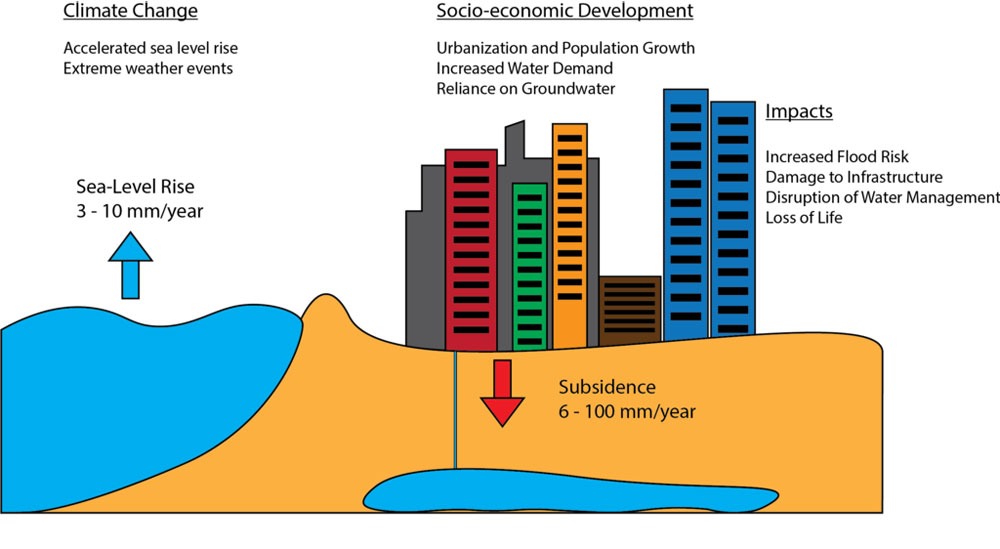
September 8, 2020; New York Times
As we can see, an unregulated economy weakens the infrastructures of our lives on this planet, deepening every form of inequity along the way. This depredation is sufficiently expected that this extraction of wealth and resources causes little alarm even when distressed chaos reigns in a time of crisis.
Consider the commodities market, which buys and sells raw materials like coal, gas, and oil and agricultural products such as corn and sugar. The market takes those basic products into the economy through the complex financial world of futures, derivatives, and risk assessments. The US federal regulators of these markets commissioned a report that delivers the damage to a new address—Wall Street—where it just might make an impression.
The report, “Managing Climate Risk in the US Financial System,” appeared last week on the Commodity Futures Trading Commission’s (CFTC) website. It concluded that US markets will be damaged through the pressure that the climate crisis will exert on mortgage markets, insurance companies, and other financial institutions. “A world wracked by frequent and devastating shocks from climate change cannot sustain the fundamental conditions supporting our financial system,” the report plainly states, reflecting on wildfires that have intensified over the years, hurricanes that are stronger and more frequent, droughts, and floods.
The Trump administration appointed the three Republicans and two Democrats that today make up the commodities regulator. Last summer, they voted unanimously to commission the report. There were dozens of analysts from investment firms like Vanguard as well as commodity companies like Cargill, the largest privately held company in the US based on its revenue in food production. Oil companies and financial firms were unlikely partners with environmental groups and academic experts in the research.
As Coral Davenport and Jeanna Smialek, writing for the New York Times, report, the panel’s chair, Robert Litterman, says, “This is the first time a government entity has looked at the impacts of climate change on financial markets in the US. Rather than saying, ‘What’s the science?’ this is saying, ‘What’s the financial risk?’”
“It was shocking when they asked me to do this,” Litterman added. “This is members of the entire community involved in financial markets saying with one voice, ‘This is a serious problem, and it has to be addressed.’”
As Douglas Holtz-Eakin, president of the American Action Forum, a conservative research organization, told the Times, “This was initiated by the Trump administration. It is the only document of its type. If you’re denying this exists, you don’t ask for a report on it.”
Sign up for our free newsletters
Subscribe to NPQ's newsletters to have our top stories delivered directly to your inbox.
By signing up, you agree to our privacy policy and terms of use, and to receive messages from NPQ and our partners.
The Trump administration has reversed water and air protection regulations, using the argument that tight environmental regulations restrict economic growth. The new report demonstrates that ignoring climate change will not lead to growth; in fact, it will cost money. Accordingly, the full CFTC has not endorsed the report yet; a senior White House official who spoke to the New York Times on condition of anonymity, said, “It doesn’t represent the position of the CFTC and is not an official government report.”
Insurance companies have a big stake in the decisions that orbit climate change. In 2006, just one year after Hurricane Katrina devastated Louisiana and Mississippi, the Insurance Information Institute estimates that insurance claims paid out for almost 993,000 homeowners came to approximately $15.5 billion. The insured losses from the 2018 Camp Fire California wildfire came to $8.47 billion.
Congress has made small steps toward “green” environmental decisions affecting businesses. Last week, senators on both sides of the aisle agreed to phase out hydrofluorocarbons, the chemicals used in air conditioners and refrigeration that are known to contribute to warming the earth. It has been placed in an amendment to a bipartisan energy bill. There is no guarantee, though, that it will be agreed by both chambers or signed by the president before 2021.
The real estate market might be the canary in the coal mine. Who wants to buy a house in a region that floods more often, has had drought and record-breaking high temperatures, or where hurricanes that are increasing in frequency?
“Climate change is linked to devaluing home values,” said Jesse Keenan, an editor of the report and a professor of real estate at Tulane University in New Orleans. “If in your town, your house is devalued, that makes it harder for your local government to raise money,” he said. “That’s one set of risks that could lead to a contagion and broader instability across financial markets.”
A price on carbon emissions, through taxes or trading credits between polluters and nonpolluters, is advised in the report. Other recommendations include:
- The Treasury Department’s Financial Stability Oversight Council’s annual report should include climate risks.
- The Federal Reserve, along with other significant financial regulators, should join international initiatives on climate threats.
- Bank regulators should begin a climate risk stress testing pilot program. (Models are already being created in Europe and Britain.)
- The Securities and Exchange Commission should reinforce any existing risk requirements for publicly traded companies concerning climate change.
What affects commodities also affects pensions and retirement funds. The Trump administration’s Labor Department has proposed an astounding rule that would prohibit retirement investment managers from including socially responsible investments—which contain environmentally responsible corporations and disallow companies such as gun manufacturers and fossil fuel—in their recommendations to clients. This would virtually cut off vital information between managers and clients who are socially responsible in their life choices and want that to continue into retirement with their life savings.
“If there’s any class of investors that should be thinking about the long run, it’s retirement funds and pension funds,” said Nathaniel Keohane, economist at the Environmental Defense Fund and one of the authors of the report.—Marian Conway











